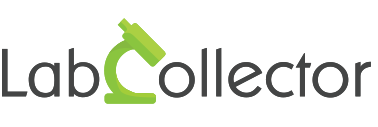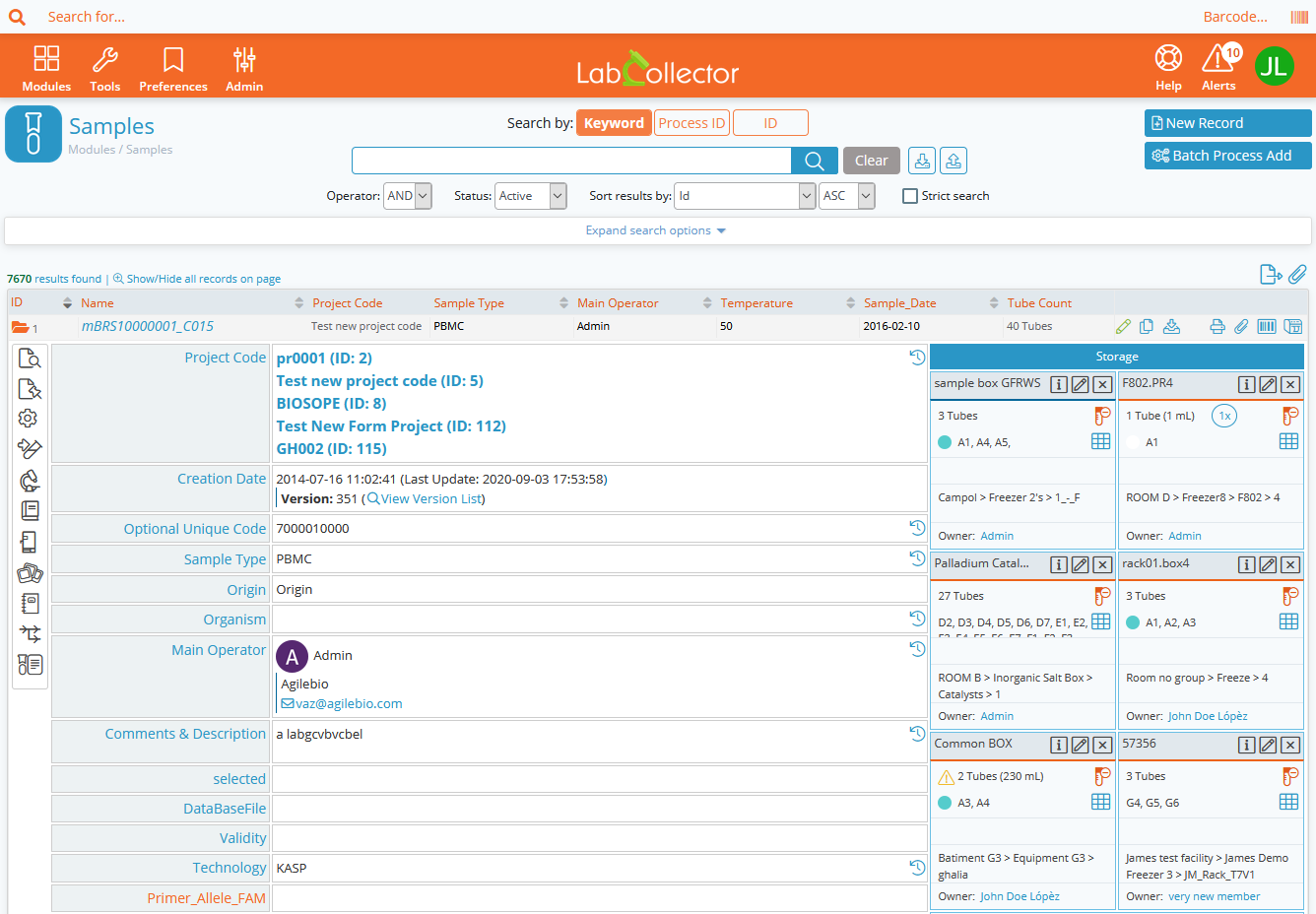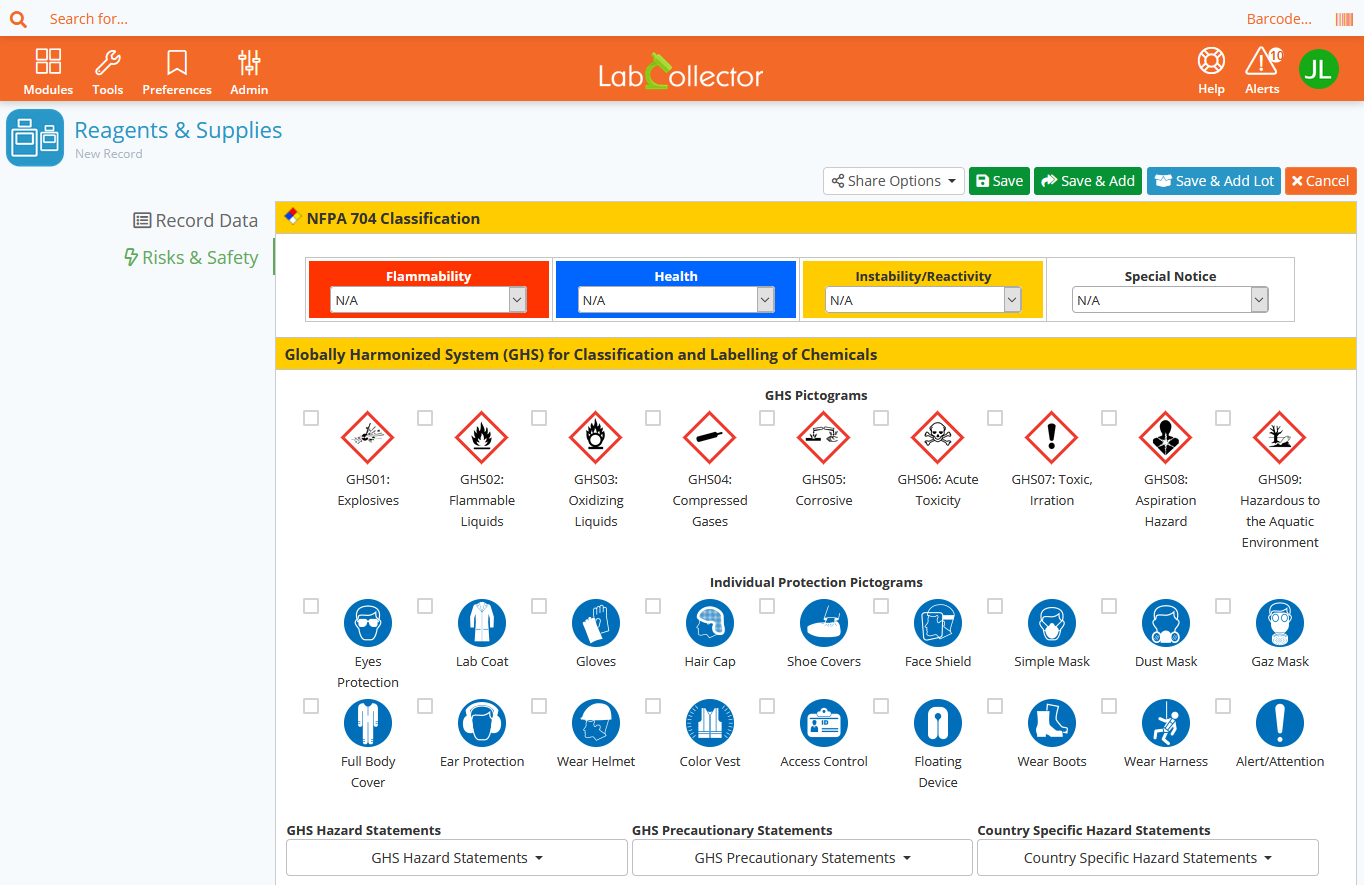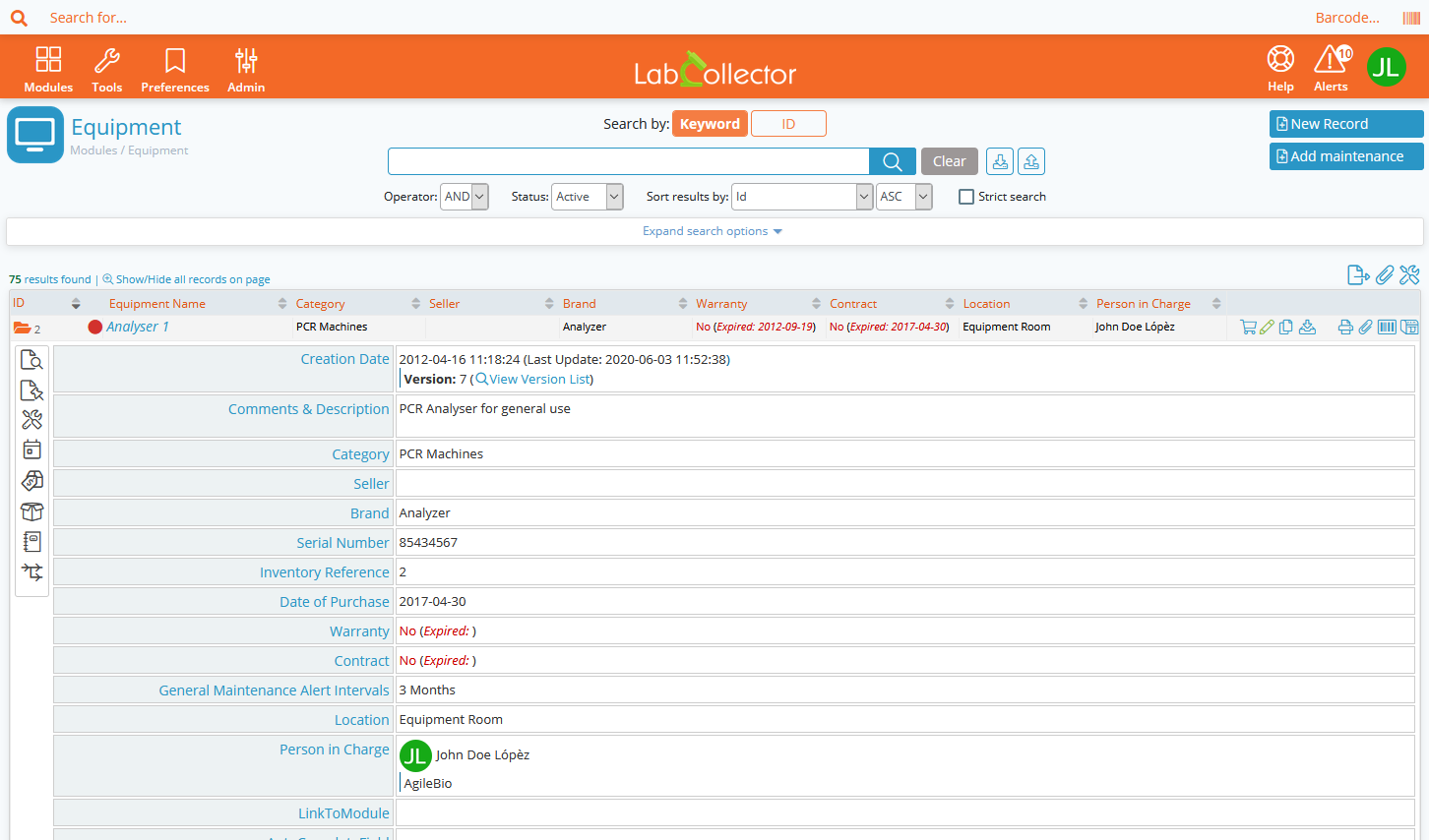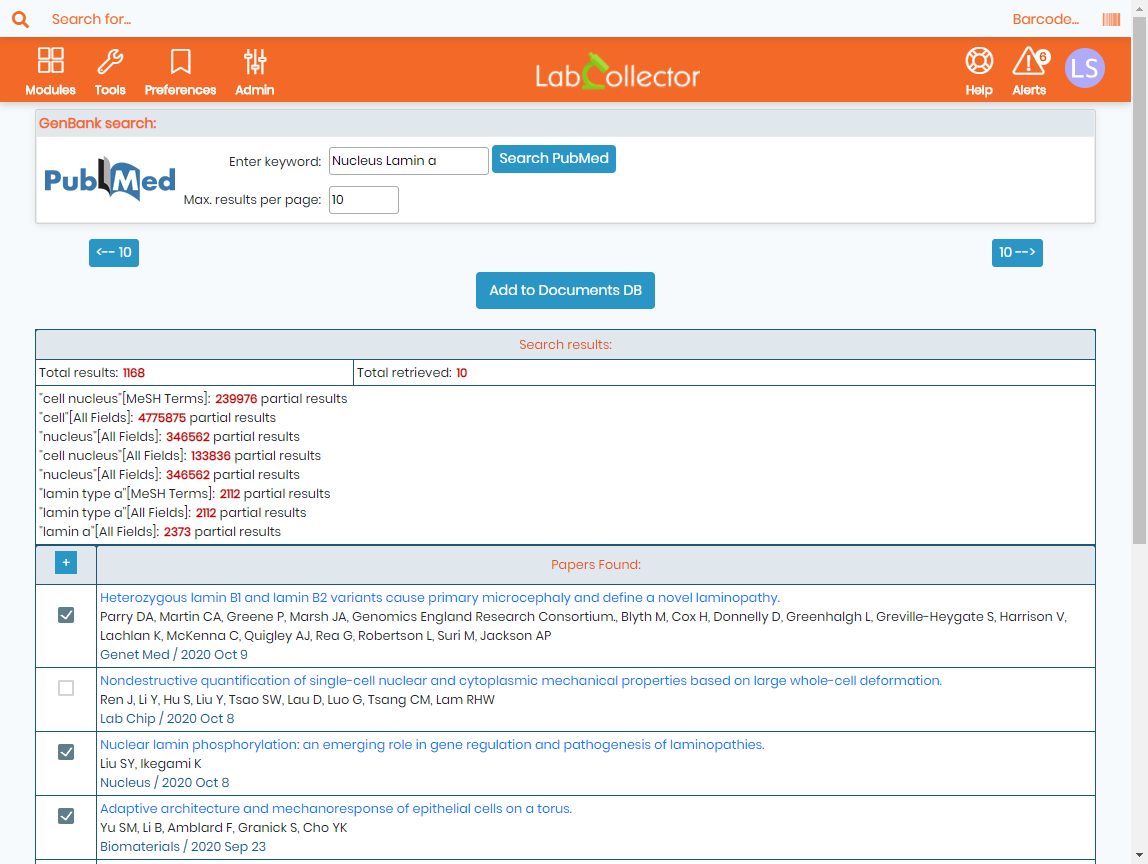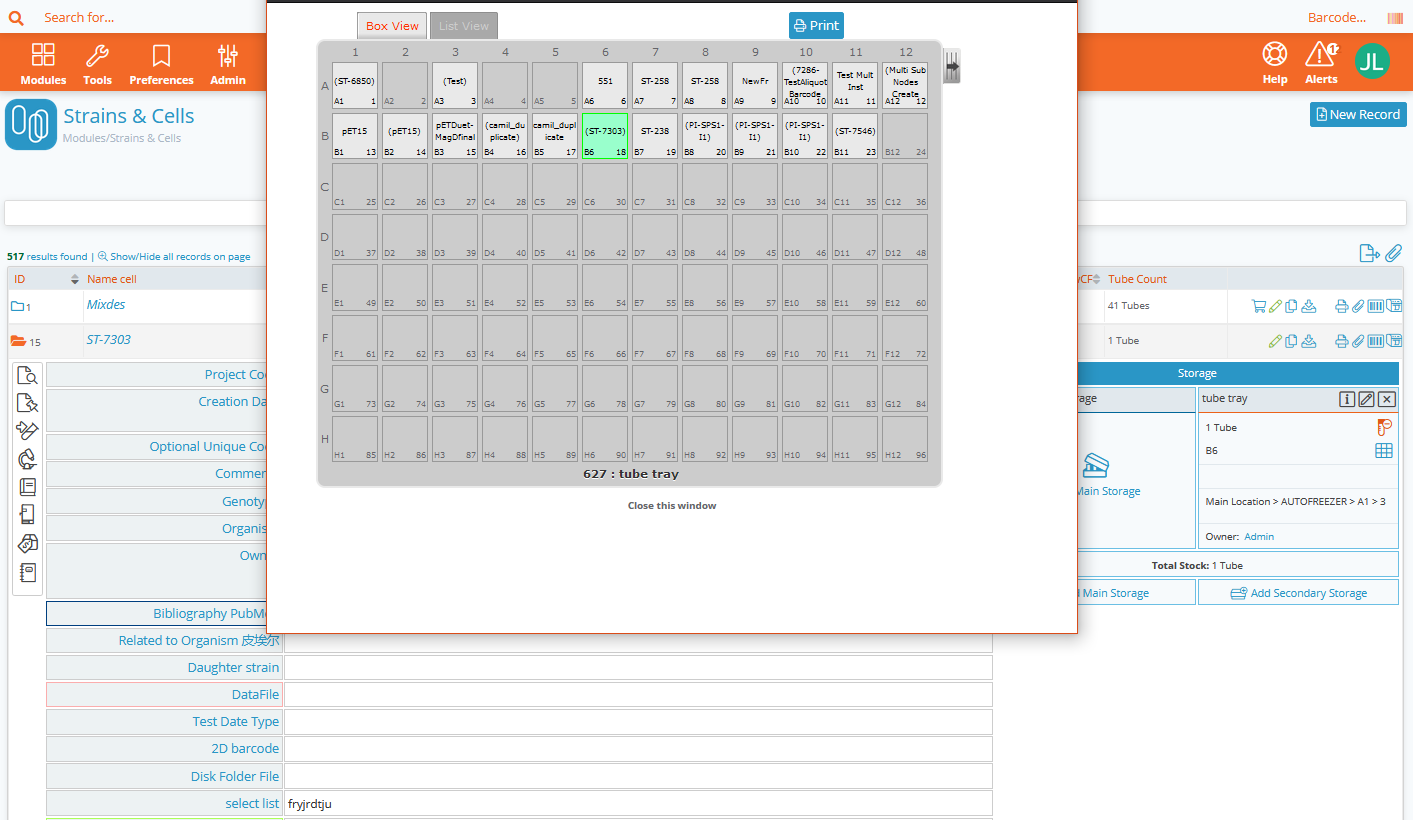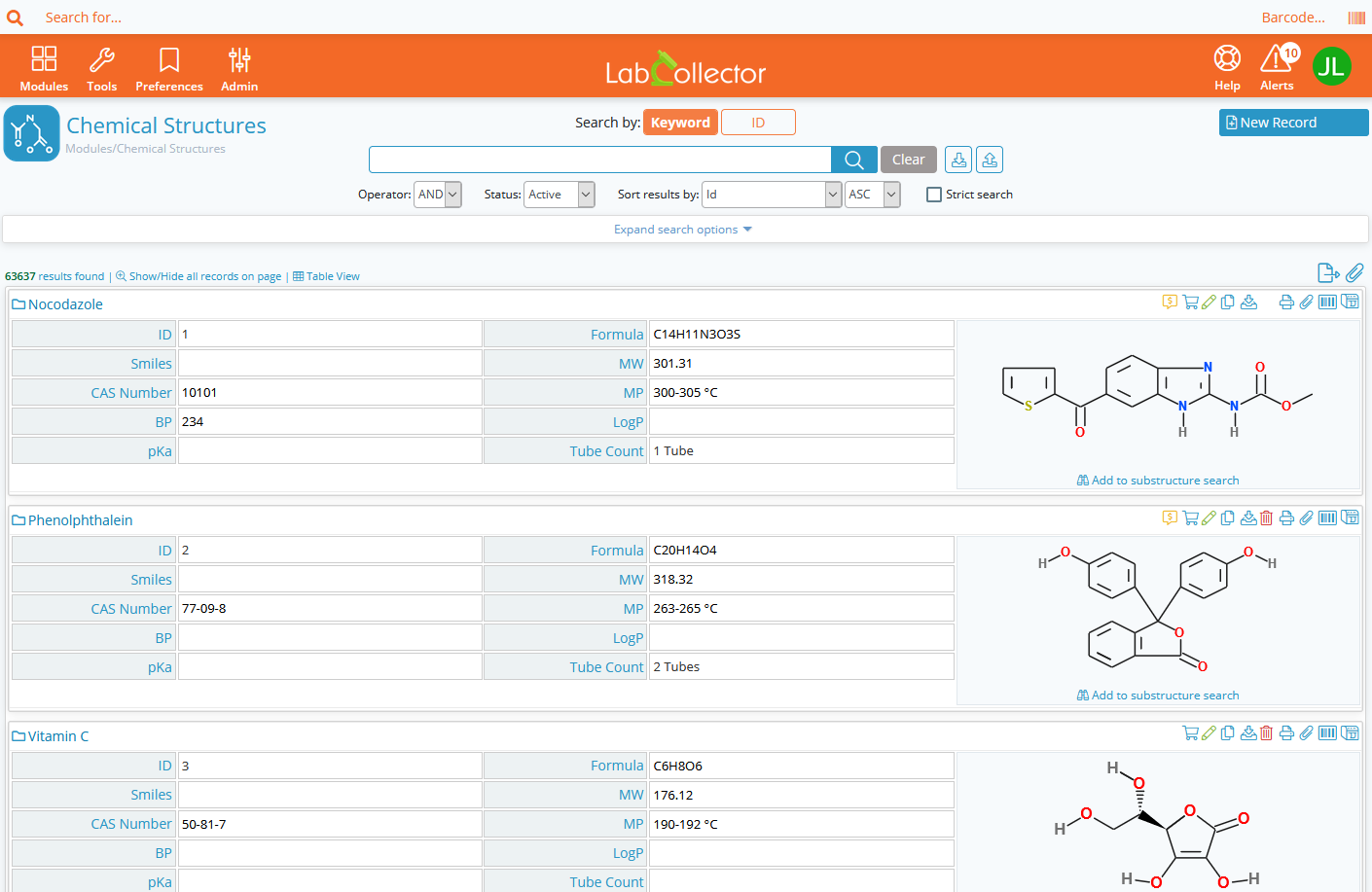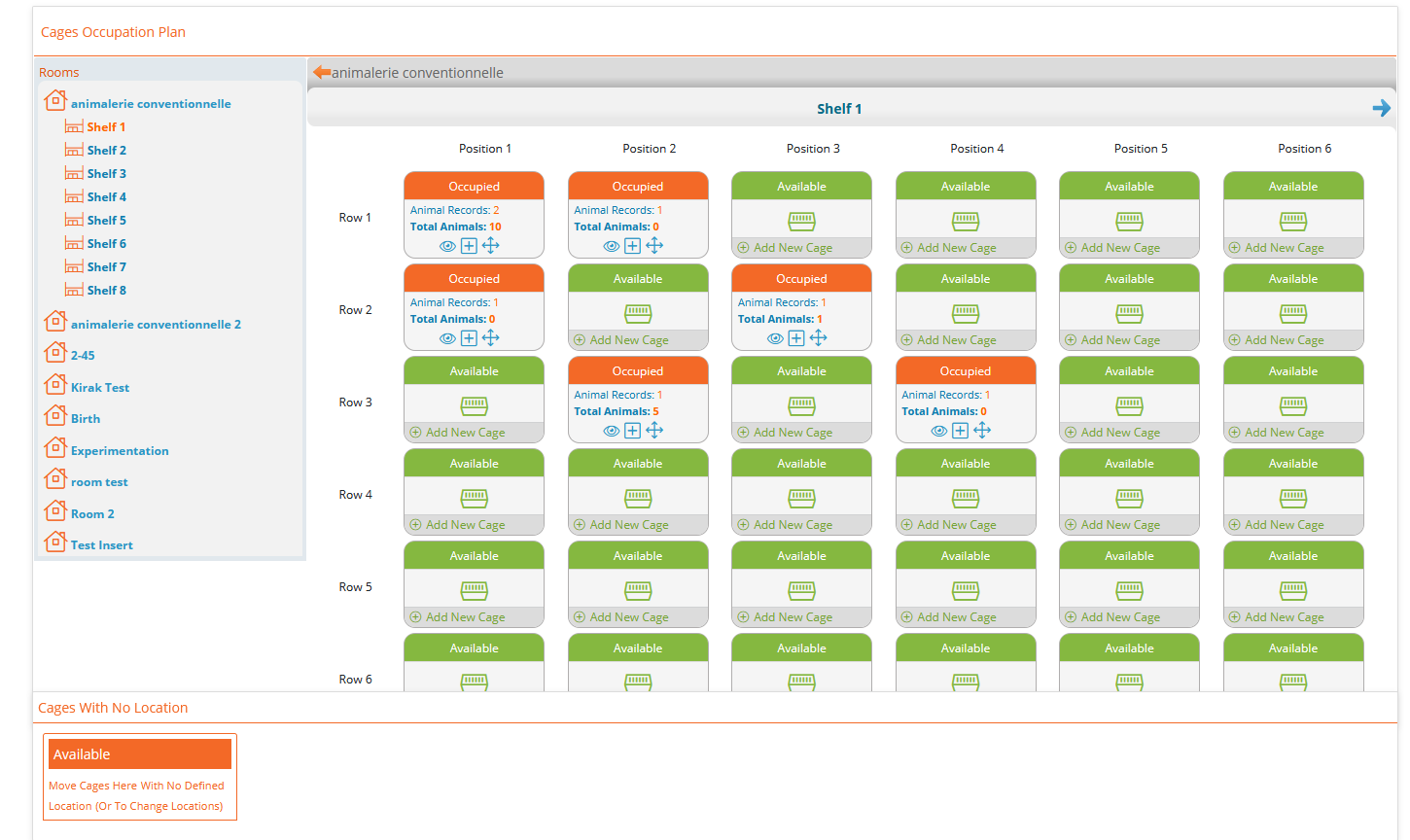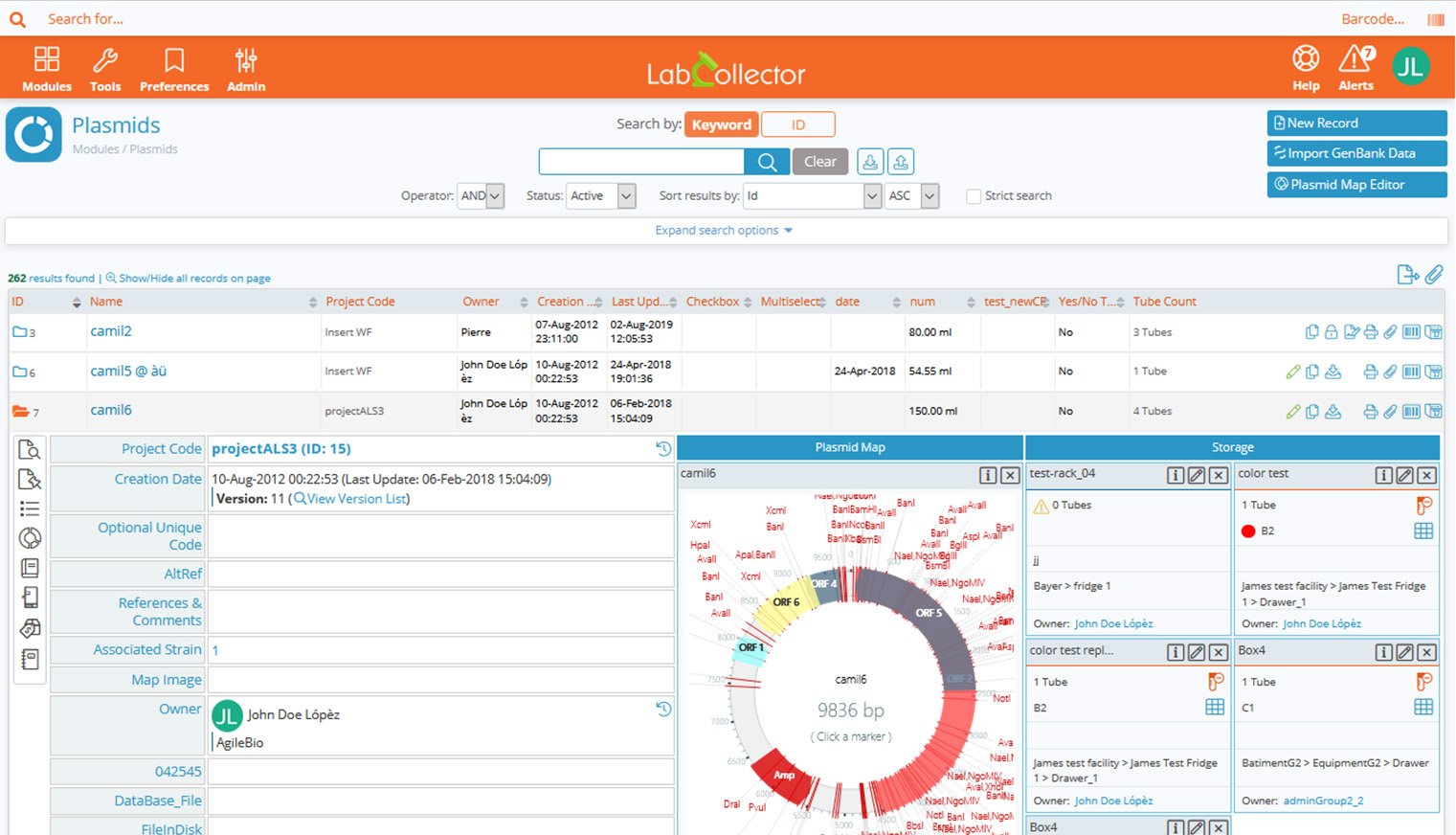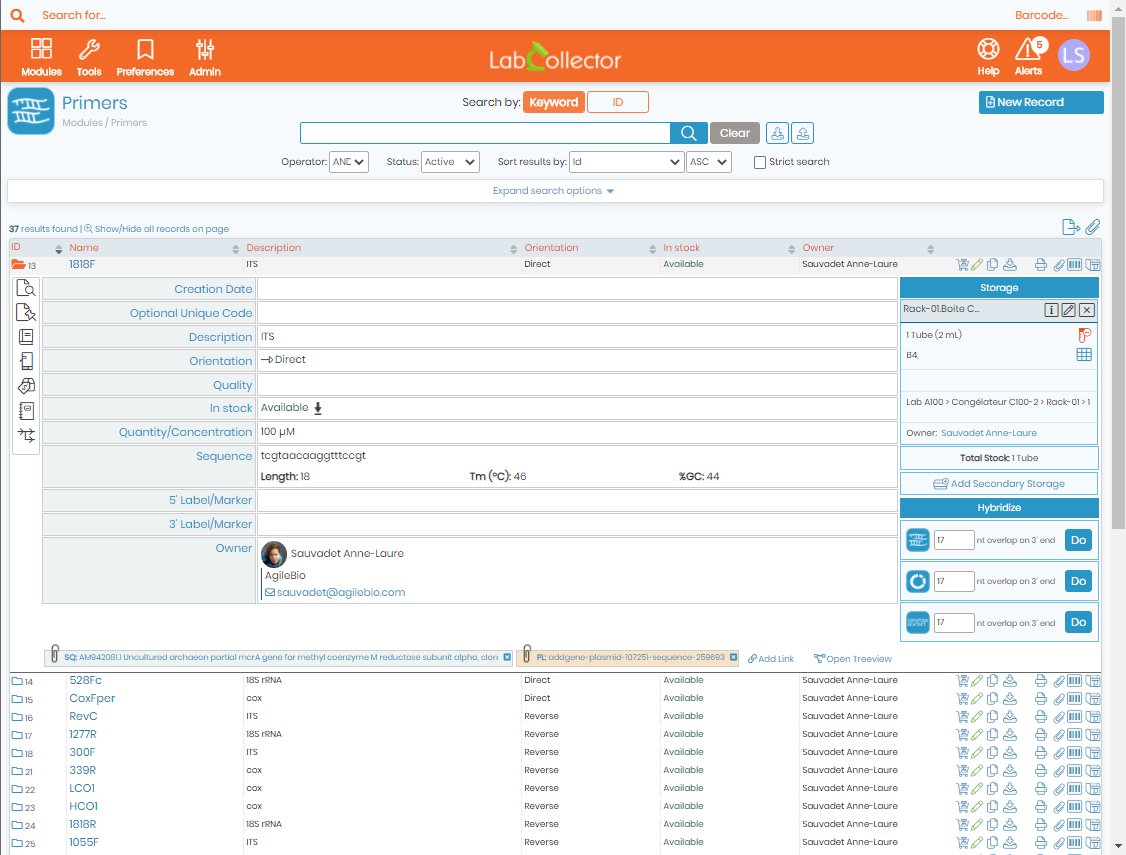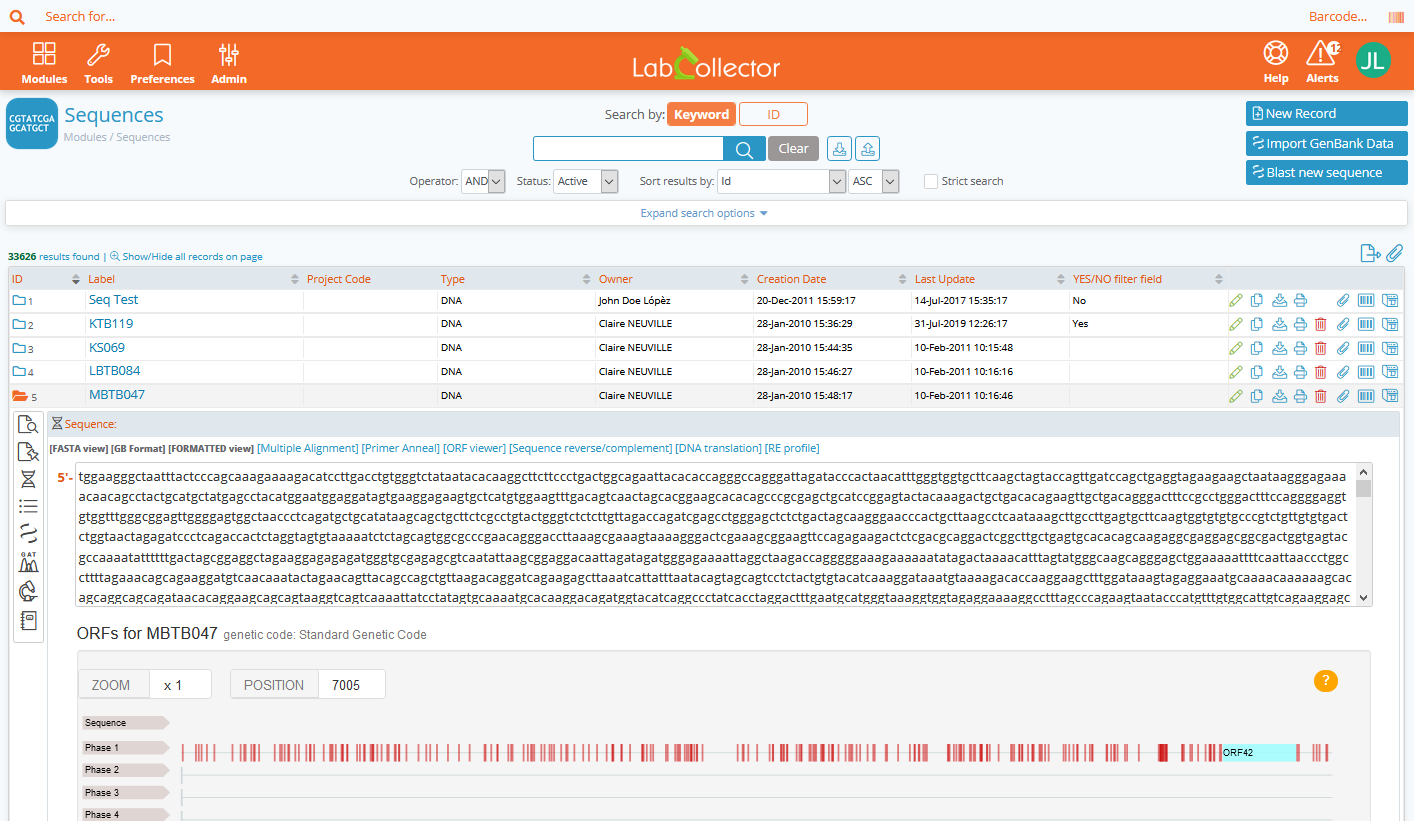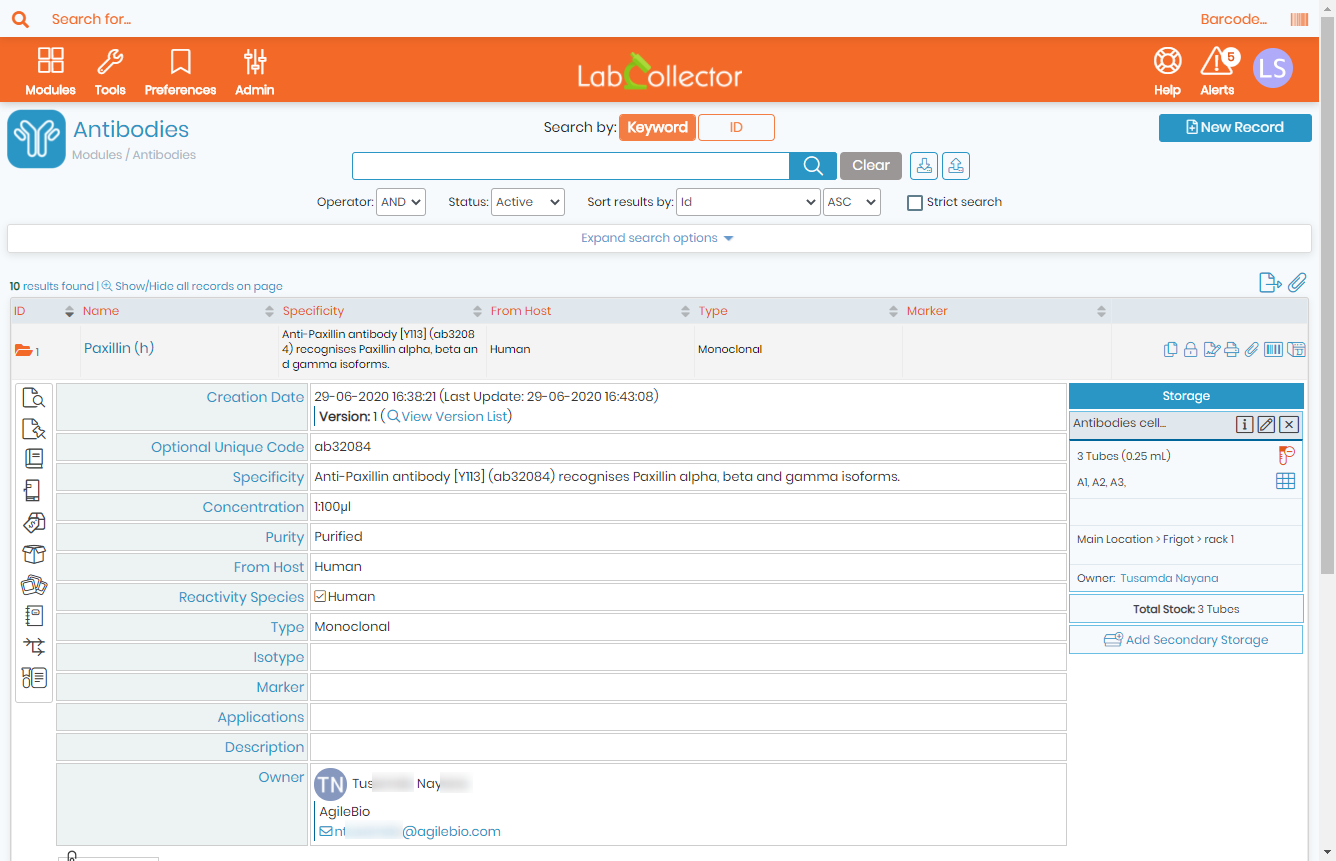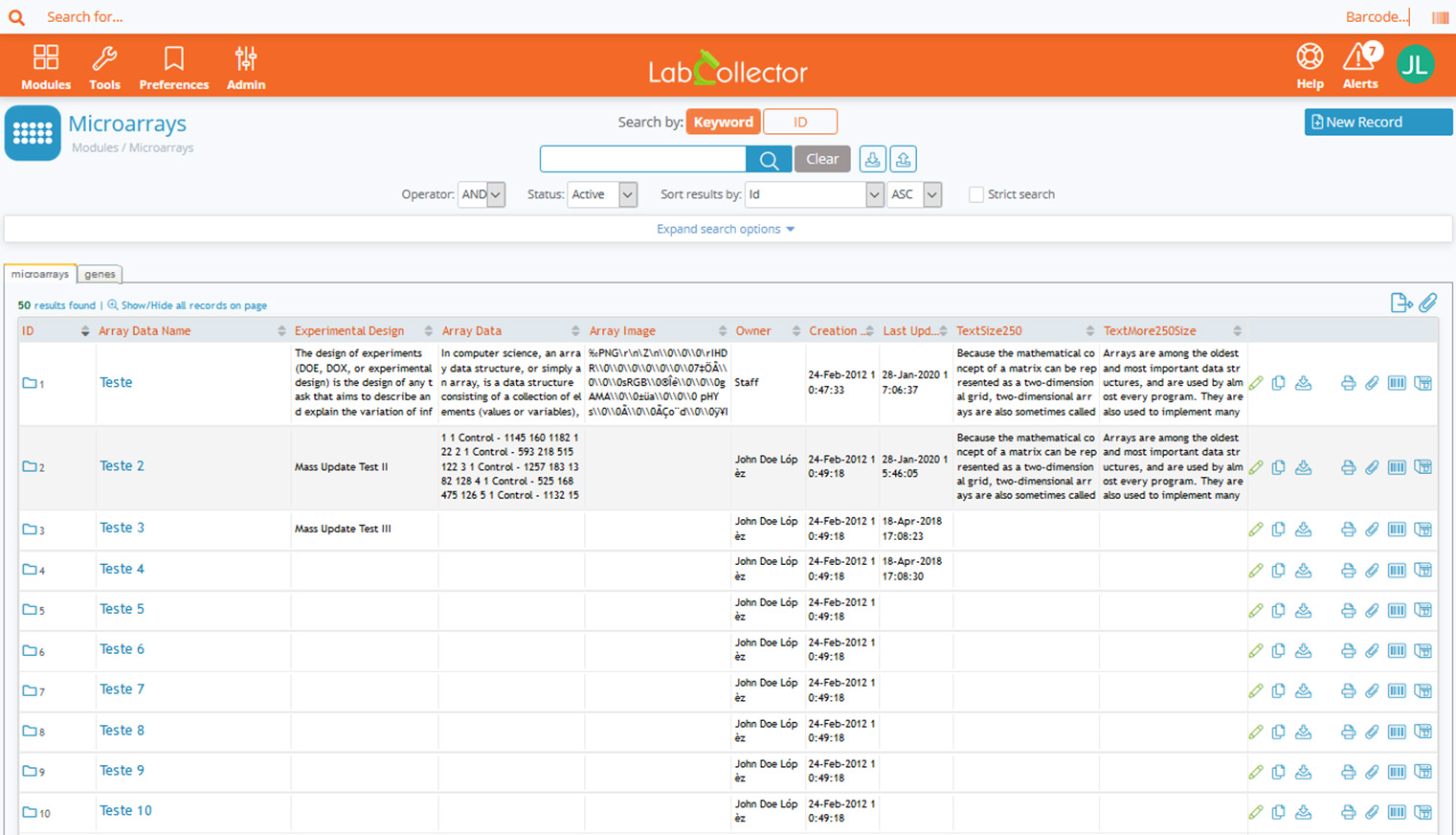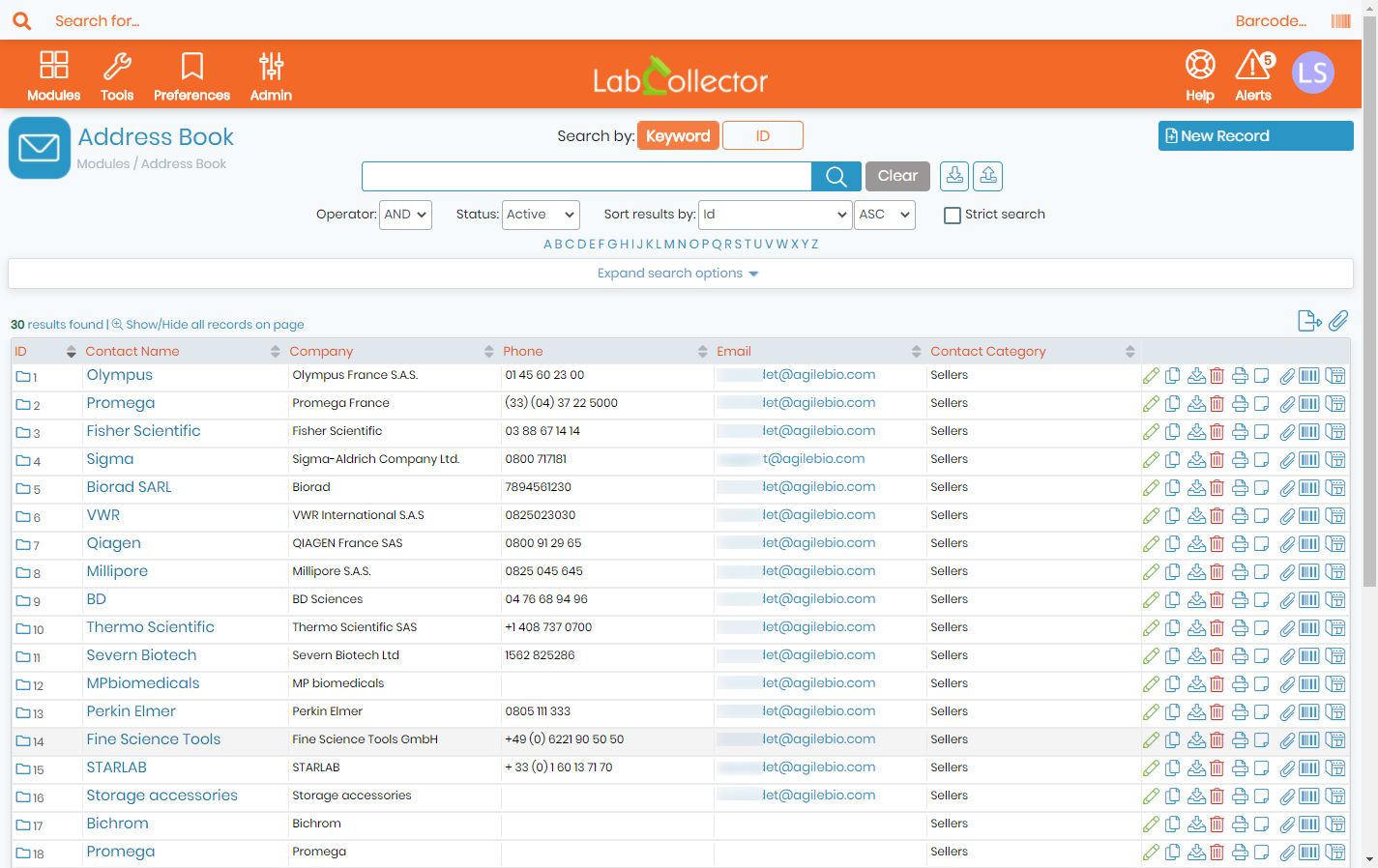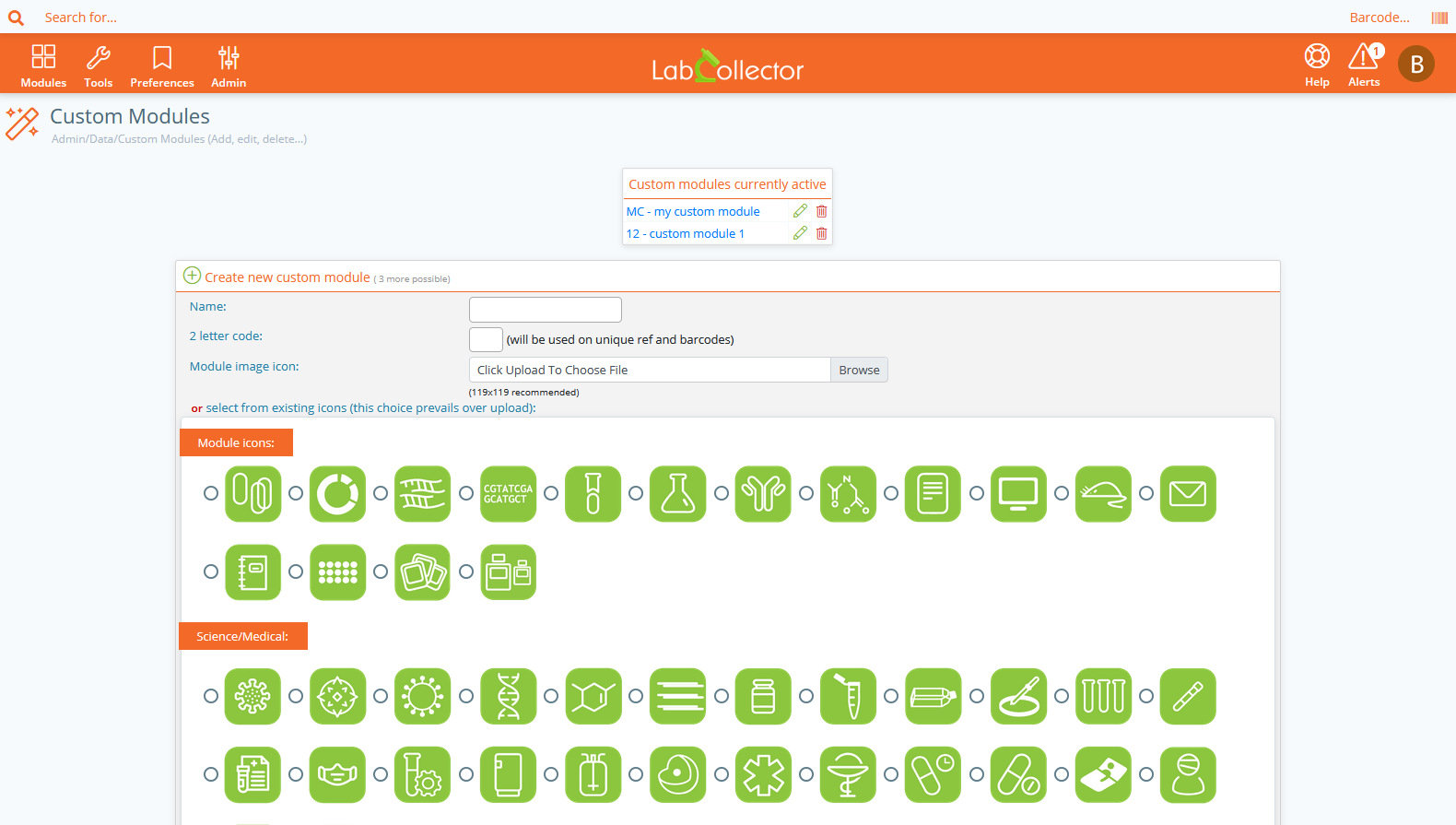LabCollector Modules
- Home
- /
- LabCollector LIMS
- /
- Features
- /
- LabCollector Modules
Inventory Modules
All modules come pre-configured with standard fields for a quick and easy start. However, to align with your lab’s specific data scheme, LabCollector LIMS offers customization options such as unlimited extra fields, module preference definitions and various other configurations.
Current release: v.6.211

UNIVERSAL MODULES

Samples Module
This module serves as the backbone for storing and managing various types of samples manipulated within your lab. From biological specimens to electronic components.

Reagents & SuppliesModule
From chemicals to laboratory consumables, this module provides a centralized repository for all materials essential for your lab operations
EquipmentModule
Efficiently manage information on lab equipment, including warranty, contract details, maintenance, calibration, and reservation calendar.
Documents Module
This module serves as a centralized repository for storing various types of documents, protocols and projects to be shared across your lab network
INDUSTRY-SPECIFIC & CUSTOM MODULES

Strains & Cells Module
Keep track of bacteria, cells, and other organisms. It facilitates the organization and display of critical information related to diverse biological entities
Chemical Structures
Module
Store and manage chemical structures and proteins. This module facilitates easy access to structural data for effective research and experimentation

Animals Module
Facilitate the management of animal facilities, including cages, experiments, and ongoing research projects.

PlasmidsModule
Store and search for plasmid data effortlessly with this module. It offers a structured platform for managing and accessing crucial genetic information
Primers Module
Detailed primer records including orientation, purity, and availability are housed within this module. It provides comprehensive management of primer-related data
SequencesModule
Easily create and maintain your lab sequences database with this module. It offers intuitive tools for sequence organization, analysis, and retrieval from GenBank.
Antibodies Module
Custom define and store your antibodies, this module offers flexibility in defining various antibody properties for efficient tracking and management
Microarrays Module
Store raw microarray data and track experiments with this module. It provides a comprehensive archive of microarray experiments for reference and analysis.

Address Book Module
Manage contacts such as partners, clients, and vendors with this configurable module. It provides a convenient solution for organizing and accessing contact information.
Custom Module
You have the flexibility to create additional modules within LabCollector tailored to your needs. Allows for the creation of specialized databases to address unique requirements and workflows within your lab.
Features you might also be interested in:
Storage
LabCollector offers a complete storage solution for your lab, optimizing sample and reagent organization/retrieval with unique IDs and barcode identification. Read more…
Barcoding & Labelling tool
Barcoding & Labeling Tool: LabCollector generates 1D & 2D barcodes for tubes, samples, documents, and more, simplifying labeling and organization in your lab. Read more…
Batch Generator
(Rack Scanner)
LabCollector efficiently catalogs samples scanned by any brand of rack scanner, automating data entry and reducing errors for effective biobanking. Read more…
Security
Ensure data safety with 2FA & backups. Read more
Importing & Exporting
LabCollector simplifies data import/export to various formats with API integration. Read more…
